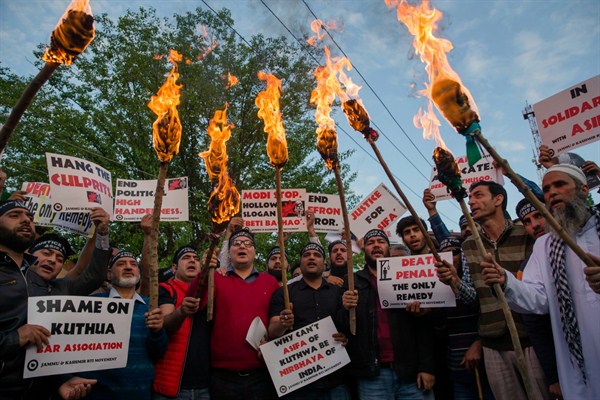Editor’s note: This article is part of an ongoing series about religious minorities in various countries around the world.
On April 13, two lawmakers from India’s ruling Bharatiya Janata Party, or BJP, resigned amid nationwide blowback over their public support for a group of Hindu men accused of the rape and murder of an 8-year-old Muslim girl. The party’s leader, Prime Minister Narendra Modi, broke his silence on the episode the same day, saying “no culprit will be spared.” The high-profile case has raised concerns about worsening intercommunal tensions in India under the right-wing, Hindu nationalist BJP. In January, Human Rights Watch said many of the BJP’s senior leaders publicly promote Hindu supremacy, and that authorities had “proven themselves unwilling to protect minority religious communities” from frequent attack. In an email interview, Sumit Ganguly, a professor of political science who holds the Tagore Chair in Indian Cultures and Civilizations at Indiana University, Bloomington, explains why India’s “well-being as a religiously and culturally pluralistic society is being undermined.”
WPR: How has the rise in Hindu nationalism and extremism affected religious minorities and religious pluralism in India?

